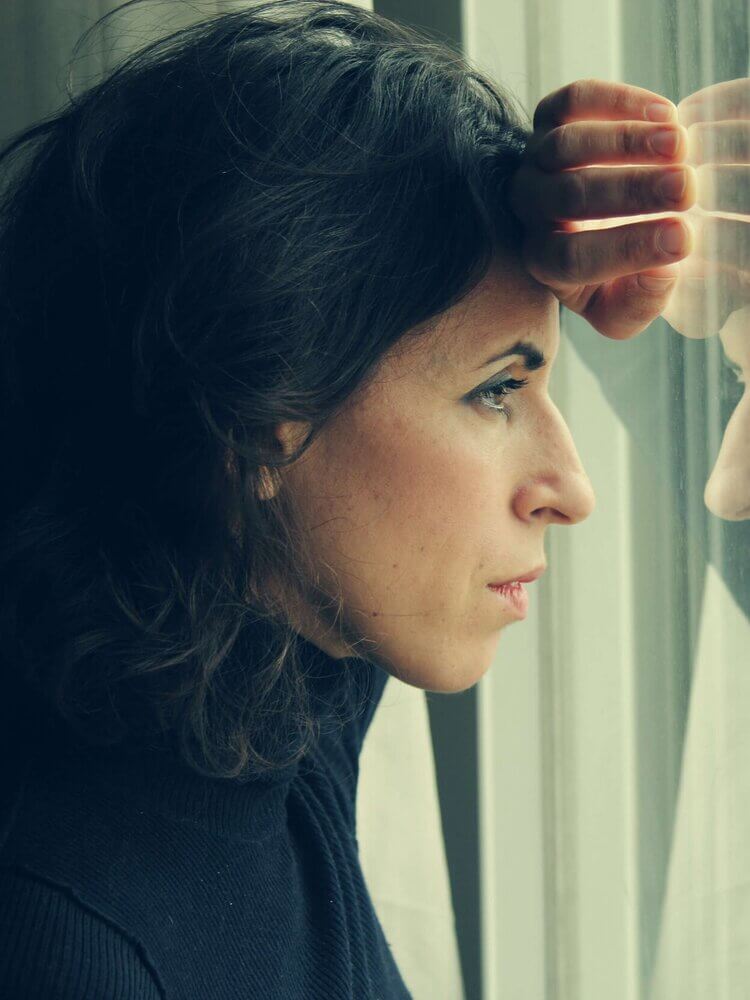Feeling sad or depressed is something that we have all experienced at one time or another.
Often, depression is the natural result of going through a stressful life event, such as losing someone you love, dealing with a chronic health issue, living alone for the first time, losing your job, ending a significant relationship, and so on. While it’s true that depression can also be caused by chemical imbalances in our brains, most commonly, it is a problem with many different causes, all of which impact and influence each other.


Depression can leave us feeling stuck, like we're going nowhere fast.
The reality is, depression impacts us at every level, affecting our energy, thinking, sleep, appetite, and enjoyment in activities. While we are not entirely certain what causes depression, we know that the amount of stress we are under and how equipped we feel to deal with that stress can drastically affect our levels of depression.
If you are struggling with depression it’s a safe bet you are experiencing things like:
- Feeling sad or down for periods lasting longer than two weeks
- Losing your appetite or eating more than you normally would
- Having trouble sleeping or sleeping too much
- Feeling restless or struggling with lack of energy and fatigue
- Feeling excessive and oppressive guilt
- Feeling hopeless or worthless
- Feeling sad for no apparent reason
- Having thoughts that you’d be better off dead or even thinking about taking your life
Most of the time, we don't see depression coming.
Depression often sneaks up on us and slowly becomes our normal.
Depression often sneaks up on us and slowly becomes our normal.
Before we know it, we find ourselves starting to isolate, not engaging in things we would normally love to do, or feel exhausted all the time—it’s often these physical symptoms that lead us to looking for relief. We try to cope as best we can: working more and harder, sleeping too much, distracting ourselves, withdrawing, or searching for any way to get more energy.
When you feel depressed you might have thoughts like:
- “What do I have to offer?”
- “If I was gone, no one would miss me.”
- “Nobody cares about me.”
- “I’m a burden to my friends and family.”
- “I must be weak if I am feeling this way.”
These thoughts can overwhelm us, keeping us from doing the things that really matter. If we’re not careful, we can start to believe what the depressed mind tells us, which can make getting help a really difficult thing to do.
Through depression therapy we can learn to become aware of these automatic responses and learn ways to untangle depression’s hooks.

What types of depression therapy work?
There are many treatment options for dealing with depression. Commonly, the first line of treatment is medication. This is no surprise. Most of us have seen those commercials promising us that a new medication is going to “fix all of our problems” and finally make us feel OK again!
It would be wonderful if this were true. While medication can prove helpful for some, it does not work for everyone, and the effects often do not last. In fact, the research is quite clear that medications are not a cure-all for depression like many assume. What they can do is help reduce depressive symptoms. Depending on the individual, one can—at best—expect to experience a 30% reduction in overall symptoms. Such medications, at their basic level work to keep your “feel good” chemicals hanging around in your brain a little longer.
This is why other options, like counseling or “talk therapy” have been so successful as either a standalone treatment or in conjunction with these medications. Reason being:
Depression counseling focuses on targeting root causes, instead of simply managing symptoms.
This is why we get regular referrals from psychiatrists and doctors who, like us, view medication as a tool—one to be used for some people, some of the time. Therapy, on the other hand, is an investment into you; into your mental well being. We believe this one of the best investments you can ever make, because it’s an investment into you—something many of us have a hard time doing.
You are not your depression. Depression treatment can help you take back control.
